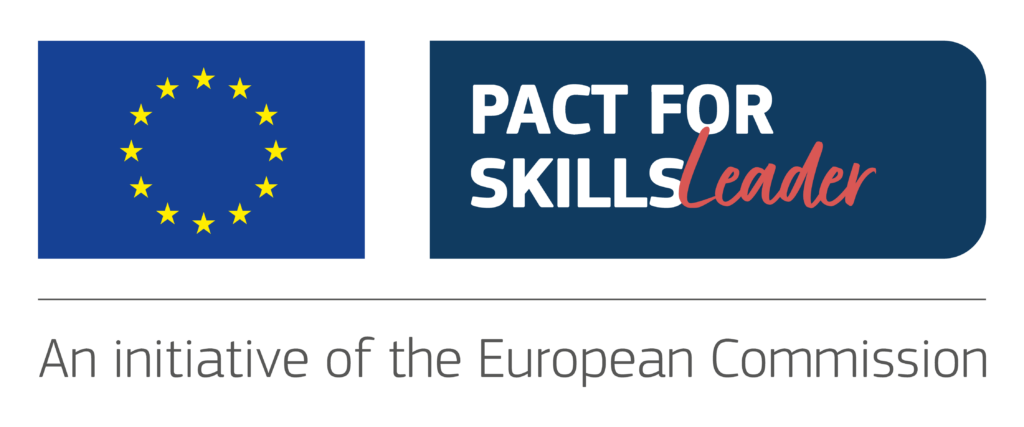Communication skills for teachers and trainers
Communication skills for teachers and trainers

Communication skills for teachers and trainers
communication
Communication is a whole lot more than just talking—although, that is a fundamental part of relationship-building and knowledge-transfer. The course includes tips, techniques, exercises, games, and other activities that give you the opportunity to learn more about effective communication, help guide your interactions with others, and improve your communication skills. We use a variety of communication exercises and games as interactional activities that aim to develop how we relate to one another, including how we share information and get along.
Moreover, communication is key in the classroom: successful teaching is generally considered to require only 50% knowledge to 50% communication skills. Being able to do this has been proven to impact the success students achieve in their academic lives, as well as the teacher’s own career success. Considering the diversity in the classroom, there is a growing demand to use innovative methods and strategies, including framing good quality instructional resources to enhance various sub-skills of communication among our students. The course shares ideas on enhancing the four core elements of Communication skills, including listening, speaking, reading and writing skills in order to get an edge up in the competition for work and employment.
In order to deepen into effective communication, participants will learn about the models of communication. The focus will be on the Use of Transactional Analysis Technique for Effective Communication. The transactional analysis is a technique which helps to understand the behaviour of other person so that communication becomes effective. Transactional Analysis (TA), thus, facilitates communication. TA studies transactions amongst people and understands their interpersonal behaviour. Other model that will be presented to the participants is the interactive communication model. According to this model, exchange of ideas and messages takes place both ways form sender to receiver and vice versa.
Effective communication must take into account the context and purpose for which teachers and students are communicating. Given the emphasis on 21st century competencies, more demands are being made on the students to explain, justify and reason through problem-solving strategies
It leads to a Level 7 EQC Certificate, accompanied by a Europass Certicicate Supplement with 10 transferable ECVET points.
Course Objectives
At the end of this course you will be able to:
• create a safe learning environment with supportive relationships
• improve your teamwork
• learn the value of body language
• omprove your active listening skills
• learn how positive feedback builds students’ confidence
• understand the value of the sense of humour
• increase the effectiveness of your communication by using up-to-date technical skills
• manage passive communication
Participants from different European countries will have the opportunity to discuss their teaching experiences and consider potential future cooperation between their schools or organisations.
Methodology
The main aspect of the course is to promote collaboration between participants. Lessons will be held in our centre’s classrooms and computer lab, as well as outside. Our approach is to base the learning process on practical rather than theoretical knowledge. The course is based on active learning methods and, at the end of the course, participants should be able to use the taught techniques effectively.
Preparation
Every participant will have to fill a questionnaire which helps the trainers to customize the course to better fit their needs.
Attendants will get instructions and material which will help them to be prepared for the courses needs.
Content
Course Contents Overview:
The course is focused on how teachers benefit from good communication skills in three different areas: when communicating with students, with parents, and with colleagues:
- Communication with students allows you to perform your job well, with positive results for your pupils. An added benefit is that your class can use you as a model for improving their own communication skills, which are critical for their development and future learning
- As a teacher, you will also need to communicate effectively with parents. This course deals with communication that takes place through a variety of mediums, including phone calls, emails, and in-person meetings in order for participants to be skilled with both verbal and written language.
- During the course participants learn communication skills that will be of use to collaborate with colleagues whether they are planning lessons together, updating their colleagues on certain students’ progress, or sharing tips about how to handle issues in the classroom
- The course will help participants to be able to lead meetings, present in front of varied audiences, and give feedback to other staff could illustrate to your colleagues and superiors that you are a good candidate for promotion
Course participants will be given several practical exercises based on the theoretical background provided and their own teaching experiences.
Structured study visits
During the course, we also organize study visits to local schools. Normally, we discuss with participants their needs and we organize study visits to cover these needs. Depending on the group, we organize from a minimum of one to a maximum of five study visits. Popular study visits include:
- A special needs education school
- A school for adults from disadvantaged backgrounds
- A school with Roma mainstreaming classes
- Vocational secondary and post-secondary schools
- General primary and secondary schools
Each study visit is structured and accompanied by reflective activities. There is no extra cost for these study visits.
Outdoors learning
There are two outdoor learning activities: a gamified tour of the town and a visit to a local historical site. The onsite visit is accompanied by non-formal European history learning activities, as well as activities that link this history to the course topic. There is no extra cost for these activities.
Social programme
There is also an optional social programme for those interested. This programme may include an intercultural night, lunches and dinners at different restaurants, going out for a drink or coffee, or even an extra excursion – if there is time! These activities depend on participant needs and wants, and those participating in them will have to pay for what they choose to eat and drink. If there is an optional excursion, they will also have to pay van costs and any other expenses (e.g. museum tickets)
Follow up
The participants will get material which includes information about all the areas covered at the course, lesson plans, all the produced outcomes of the course, useful links and more.
The above material can be freely used by the participants at their school.
Target Group / Who is this course for
This course is for every teacher in primary, secondary, adult or vocational education and training interested in teaching English or teaching in English.
Duration and cost
The duration of the course is 7 training days and the cost is:
- 490€ euro for grants received with the 2014-2020 Erasmus+
- 560€ for grants received with the 2021-2027 one
- The price for those without a grant is 560 €
If you have received a grant for a shorter or longer course, let us know! There are options available.
Don’t hesitate to contact us if you need further assistance!
Available Dates
- 2023
- 07.05.2023 – 13.05.2023
Location
Kalamata is a nice sea-side city in the south of Greece. It’s a quiet top golf destination and the Telegraph has included it in Europe’s 13 must-visit cities.
During your stay here you can stay wherever you want. However, we do propose accommodation. Which we can book for you and from which we offer free transfers to all course sites and activities.
Application assistance
Assistance is available. Don’t hesitate to ask us for help!
Fill now the pre-registration form
Pre-payments and course confirmation
We do not ask for money upfront. You can pay whenever you want including when you arrive here.
We have never canceled a course. We offer our courses only at our headquarters in Kalamata and only a few times per year. As a result, on top of being able to offer quality services all around, we do not have to fly trainers all over the globe and worry about local agents and the extra costs that these incur.




